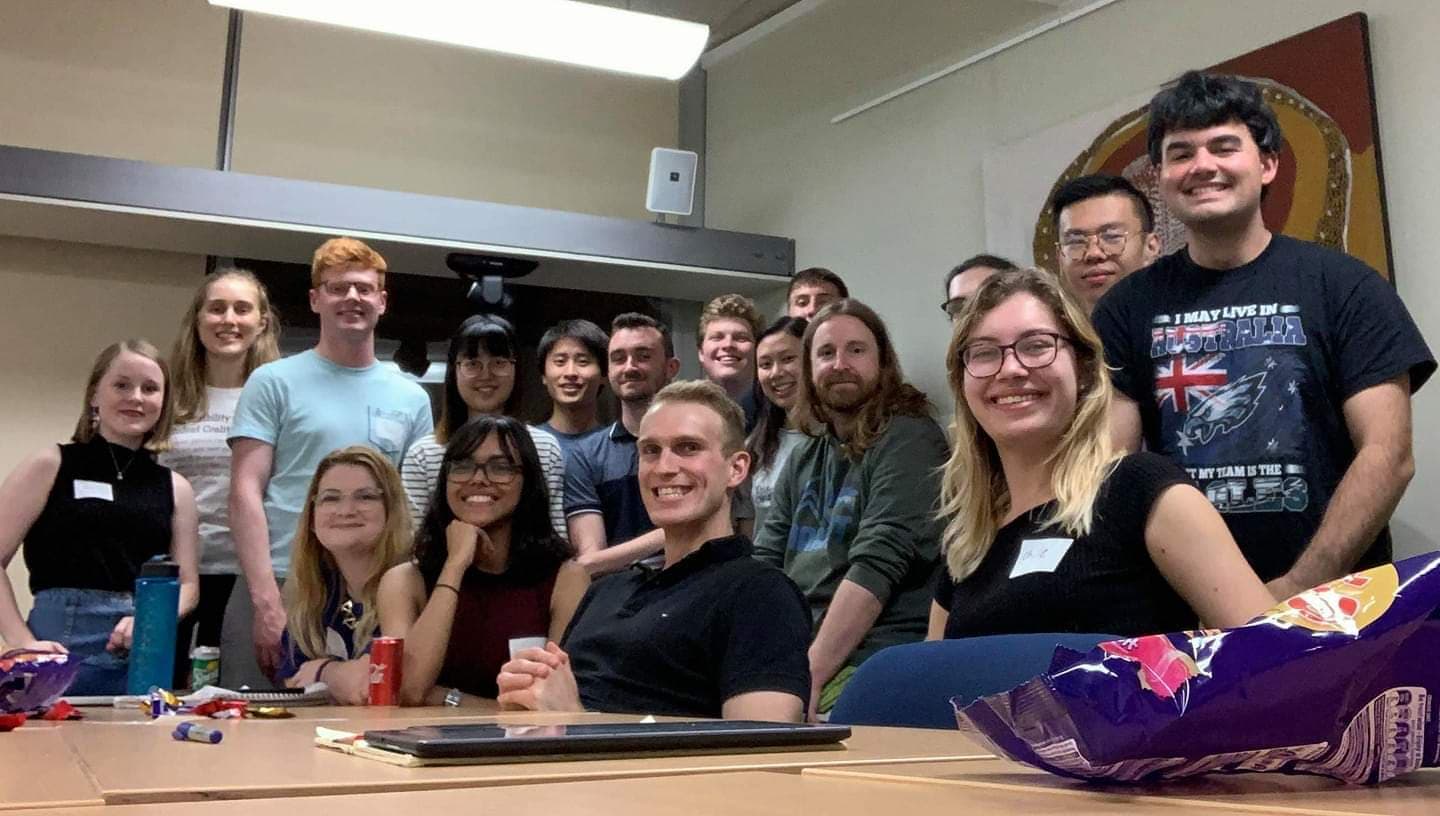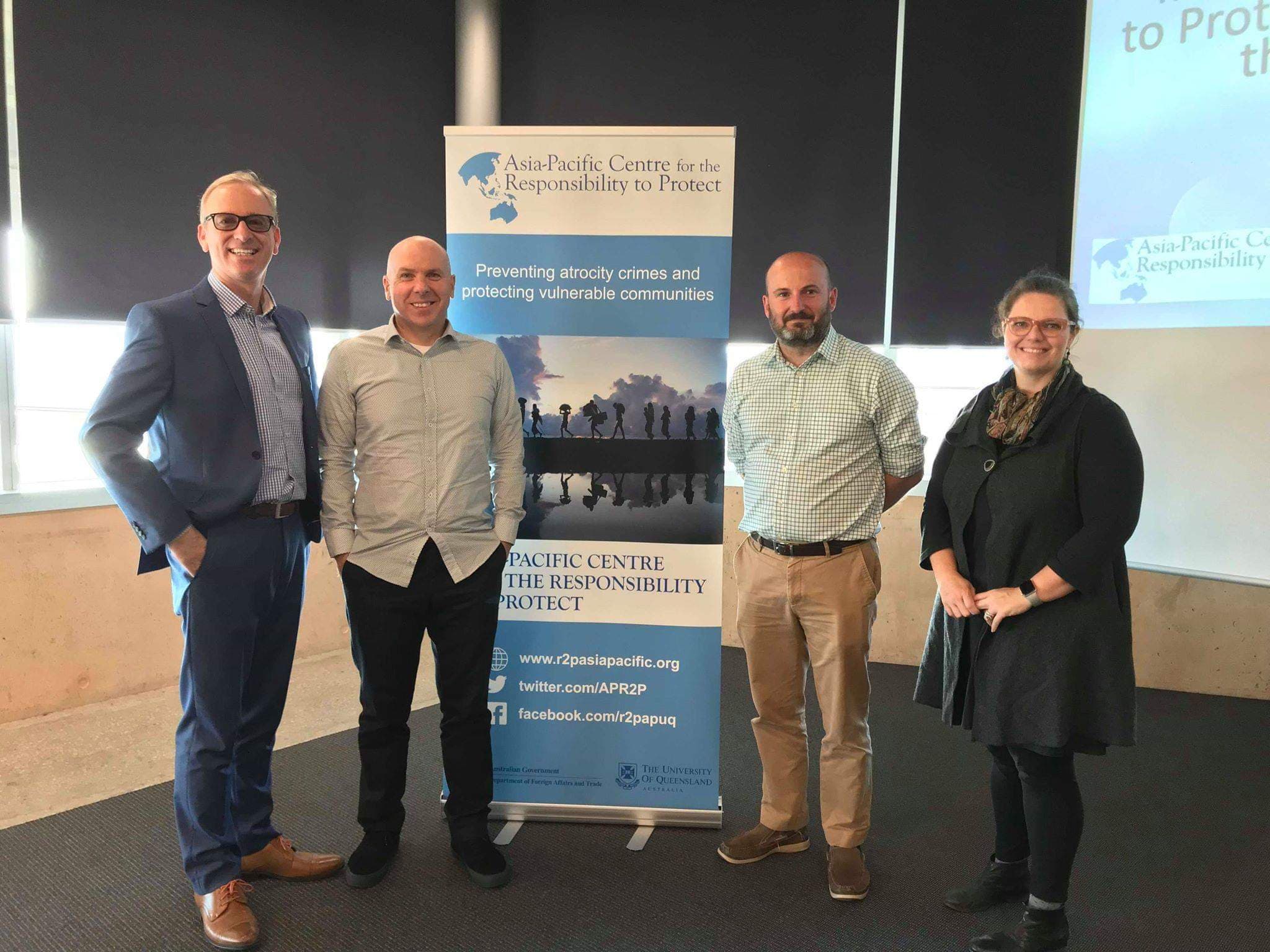The Responsibility to Protect Student Coalition (R2PSC) is the student arm of the Asia-Pacific Centre for the Responsibility to Protect (APR2P), the region’s leading organisation for research and advancing policy on the Responsibility to Protect; a framework for preventing and responding to atrocity crimes, namely genocide, war crimes, crimes against humanity, and ethnic cleansing. The director of the APR2P, Professor Alexander Bellamy, along with Pro-Vice Chancellor Professor Tim Dunne, co-edited the Oxford Handbook on the Responsibility to Protect and are leading scholars of R2P principle, as well as being professors of Peace and Conflict studies and International Relations respectively at UQ. As a UQ student society, members of the the R2P Student Coalition are fortunate to have tremendous access to the APR2P, it’s permanent and visiting academics and experts, events, and engagement opportunities with international bodies like the United Nations.
The R2PSC’s main mission is to raise awareness about the Responsibility to Protect and educate the UQ community about past atrocities to ensure that genocide and mass atrocities cannot and will not ever happen again. Past events held throughout the semester have included documentary screenings, panel discussions, introductory presentations on R2P principles, simulations based on current events at risk of becoming a humanitarian crisis, and ad-hoc events featuring visiting academics and experts.
About the Responsibility to Protect (R2P)
The Responsibility to Protect (R2P) originated from a 2001 report published by the International Commission on Intervention and State Sovereignty (ICISS) which researched the problem of humanitarian intervention, particularly the challenge that a military intervention by a single state or international body posed to the concept of state sovereignty. The ICISS came to the conclusion that, to avoid atrocity crimes being committed against a state’s population, it is the state’s responsibility, first and foremost, to protect its population against such crimes. Furthermore, if a state is unwilling or unable to protect their population themselves then it falls to the wider international community to bear that responsibility.
Since then, the R2P principle has been advanced through numerous channels within the United Nations. In the 2005 World Summit at the UN headquarters, heads of state and government reaffirmed their commitment to the R2P principle, recognising in its Outcome document the need for the General Assembly to continue considering the implications of R2P and reaffirmed support for the mission of the Special Advisor of the Secretary-General on the Prevention of Genocide.
In 2009, following the 2005 World Summit Ban Ki-Moon, the UN Secretary-General at the time, released a report entitled ‘Implementing the responsibility to protect’ to advance the agenda put forward at the Summit. The R2P principle was separated into three ‘pillars’ and further ideas were given for policy makers to operationalise it further in the future.
1. Each individual State bears the primary responsibility for protecting its own populations from genocide, war crimes, ethnic cleansing and crimes against humanity.
2. The international community has a responsibility to encourage and assist States in fulfilling this primary responsibility.
3. The international community has the responsibility to use appropriate diplomatic, humanitarian and other peaceful means to protect populations from these crimes. Should peaceful means be inadequate and national authorities of States manifestly fail to protect their populations from these crimes, the international community must be prepared to take timely and decisive action to protect those populations at risk, in accordance with the UN Charter.



Support
A independent, free, short term support service for students, assisting with matters including academic, welfare, job prep, Visa, and legal. Booking an appointment online is easy!
Tips & tricks on how to look after yourself, from managing stress to eating well.
Need exam support? We’ve got your back! Get advice and assistance to ace your exams with less stress.
Food Co-Op, Morning Marmalade & Kampus Kitchen
Located in the Union Complex, Food Co-op stocks free and low-cost grocery items for students, while Morning Marmalade & Kampus Kitchen serve up free breakfasts and dinners.
Connect
Find your crowd among 220+ Clubs & Societies, with 35,000+ students learning new skills with like-minded people.
Join our volunteer team powering our services and events. Every bit of help, big or small, makes a difference in supporting more students like you!
UQU Collectives support minority, special interest, and community groups on campus, providing a safe, supportive environment and networking opportunities.
Access a range of contacts for assessment proofreading tailored to your needs, faculty and budget!
Eat
Indulge in a range of tempting food, refreshing beverages and great retail to keep you energised and ready to conquer your classes!
Maximise your uni experience! Grab a FREE Mates Rates membership for a 10% discount at applicable UQU outlets and exclusive offers just for you!
Lorem ipsum dolor sit amet, consectetur adipiscing elit. Aenean porttitor porttitor ipsum ut lobortis.
Gift your study buddy a voucher for our UQU outlets, so they can unwind and treat themselves.